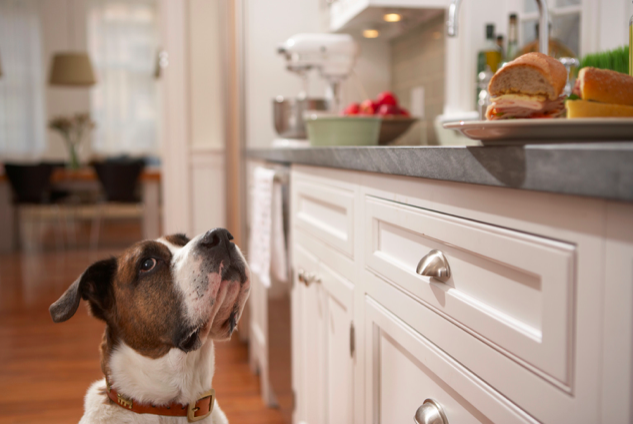March is National Pet Poison Prevention Month, and an important time to remind and educate pet owners on the dangers of accidental pet poisonings and how to prevent them. National Pet Poison Prevention Month was established to raise awareness to and prevent illnesses and injuries for pets.
There are a number of common human foods that are considered toxic if ingested by our pets. Some of these foods include:
- Alcohol
- Bones
- Caffeine
- Chocolate
- Grapes and raisins
There are also common household plants that are known to be toxic to our animal companions, including:
- Azalea
- Cactus
- Lilies
- Ivy
It’s important to note that spring and summer can be particularly hazardous times for pets with many lawn and garden chemicals being used. Be sure to keep these supplies sealed tightly and out of reach from curious pets.
The ASPCA has a complete list on their website, which lists household cleaning products as well as health and beauty items that can be poisonous to our furry family members. Click on the following link to view the list of items.
You may also download the ASPCA’s Animal Poison Control Center’s (APCC) mobile app, which helps pet owners to identify more than 300 potential everyday hazards, from common people foods, to household cleaning supplies, to plants and flowers found in our homes or yards.
Certain poisons will result in an immediate reaction from pets, while other poisons may take several days for symptoms to develop. The following are some symptoms to look for if your pet accidentally ingests poison:
- Drooling, vomiting, loss of appetite, diarrhea
- Weakness
- Excessive thirst or urination
- Nervousness, hyperactivity, muscle tremors, and seizures
If you believe your pet has eaten something they shouldn’t have, call your veterinarian or local emergency pet clinic immediately. You can also call the ASPCA Animal Poison Control Center at 888-426-4435, 24 hours a day, 365 days a year. A consultation fee may apply.
For more information on how to keep pets safe, visit:














